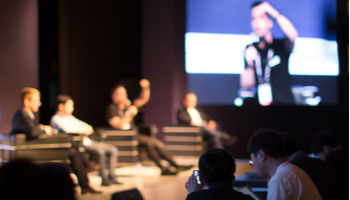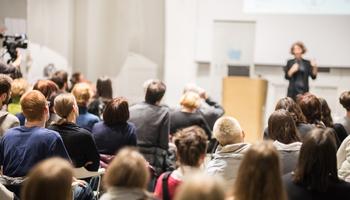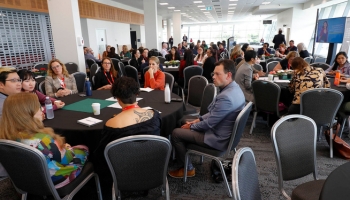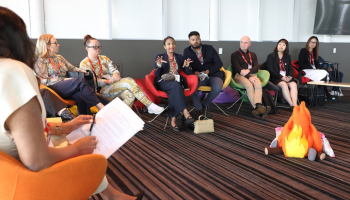Session types
Learning and knowledge sharing will be available through different session formats that range from structured lecture-style presentations and panels to less structured yet highly interactive formats like campfires and cafés.
 |
PlenariesSometimes the only way to get fresh ideas and move forward is by stepping back to see the big picture. Our inspiring keynote speakers will offer you a new perspective. They will feature in plenary sessions on Wednesday and Friday. |
 |
Presentations and panelsThese 60-minute, lecture-style sessions start with a formal presentation by one to four speakers and include some time for questions at the end. In a panel, each speaker brings a different perspective or presents a different view about the same topic. |
 |
Inspire presentationsThese 14-minute content-heavy and fast-paced presentations will present findings from a research project, showcase best/innovative practices and case studies and provide expert advice or commentary on a particular issue or challenge. There will be an opportunity at the end of the session to ask questions in the last 15 minutes of the session. Presentations will be grouped into sessions by topics or key interest areas. |
 |
CafésA café is a large group discussion technique designed to encourage small, intimate and informal discussions around a central topic. Participants sit in small groups (usually 5 to 8 people per table) and share experiences, anecdotes and knowledge. There is no formal presentation or speech, but the facilitator provides time at the end of the session for some group reporting. Unlike roundtables, the café sessions focus on the discussion itself, rather than finding a collective resolution to a challenge. |
 |
CampfiresJust like a group of people sitting around a campfire listening to someone tell a story, a campfire session at a conference is an informal way of presenting and discussing topics with meeting attendees. It allows for participants in the group to become ‘active’ participants, or just stay ‘passive’ participants if they just want to listen in. It encourages the audience to ‘set the agenda’ by posting questions and discussion topics. |
9 February - Call for proposals opens
20 March - Call for proposals closes
April - Registration open
June - Program released
31 July - Super early bird registration closes
18 September - Early bird registration closes
27 - 30 October – AIEC 2026








